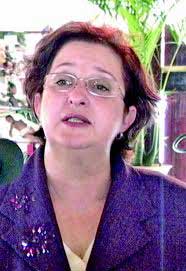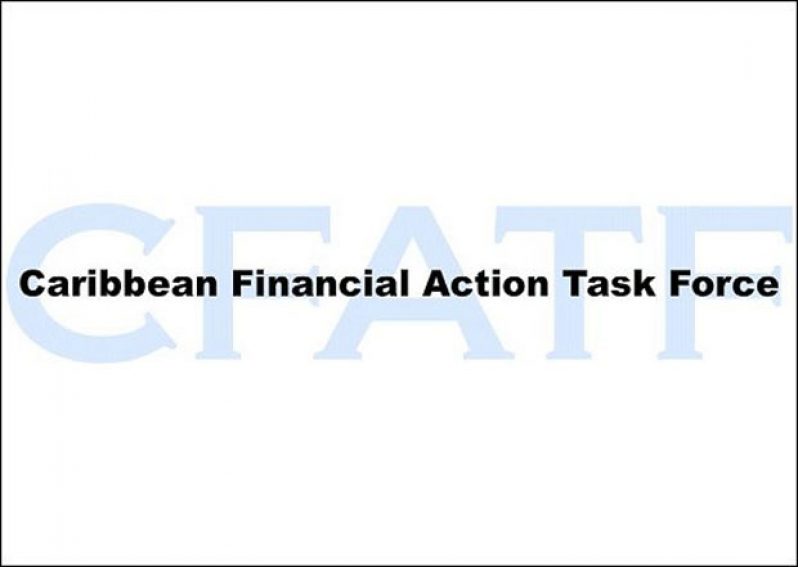THE 36-member Financial Action Task Force (FATF) and representatives from its regional bodies, among them the Caribbean Financial Action Task Force (CFATF), begin their three-day meeting in the French capital, Paris, today.
And Presidential Advisor on Governance, Gail Teixiera, is representing Guyana at what is essentially FATF’s third plenary meeting, under the presidency of Mr. Vladimir Nechaev of the Russian Federation.
Some of the issues on the agenda for the plenary:

* Reviewing the implementation of measures taken by countries who remain in the ‘follow-up process’ to address deficiencies identified in their anti-money laundering and countering the financing of terrorism (AML/CFT) measures during the last round of mutual evaluation reports;
* Identifying jurisdictions with strategic deficiencies in their AML/CFT system and reviewing progress made by jurisdictions that had been identified at the February 2014 Plenary;
* Reviewing and adopting typologies reports on methods and trends in money laundering and terrorist financing, including the report on the risk of terrorist abuse of the non-profit sector; and .
* Engaging with the FATF-Style Regional Bodies through the Global Network Co-ordination Group to ensure effective global implementation of the revised FATF Recommendations.
GUYANA’ CASE
The FATF Plenary is the decision-making body of the international watchdog, and how much Ms. Teixiera will be able to achieve is still uncertain, given the many deadlines Guyana has already missed to ensure the country is compliant with international standards.
Guyana was regionally blacklisted in November by CFAT, and was recommended by the regional watchdog to FATF on May 29, at which time the body recommended counter-measures to be taken against Guyana. The range of onerous measures include: Enhancing due diligence measures in their dealings with Guyana; introducing enhanced reporting mechanisms, or systematic reporting of financial transactions; refusing to establish subsidiaries or branches or representative offices in Guyana; and taking into account the fact that financial institutions from Guyana do not have adequate AML/CFT systems, and thus limit the business relationships or financial transactions with this country.
The enactment of the AML/CFT (Amendment) Bill before CFATF’s meet in May, by all accounts, could have averted Guyana’s referral to CFATF, particularly since the body had noted that 90 per cent of the deficiencies identified are legislative in nature.
The Bill, to meet CFATF’s requirements, was tabled in the National Assembly in April 2013, but referred to a Parliamentary Special Select Committee and eventually voted down by the combined Opposition in November 2013. The Bill was re-tabled in December 2013, and again referred to the Parliamentary Special Select Committee, chaired by Ms. Teixiera, where it has been since.
Government has repeated it willingness to have the Bill passed, and has demonstrated its commitment to same, but has been locked in political gridlock with the combined Parliamentary Opposition, A Partnership for National Unity (APNU) and Alliance for Change (AFC).
Both Parties have linked conditionalities to their support for the passage of the AML/CFT (Amendment) Bill.
APNU proposed three amendments, which were included in the Party’s draft amendments to the Principal AML/CFT Act, which President Donald Ramotar said would be supported by his Government if the Party would agree to pass the AML/CFT (Amendment) Bill. This was rejected.
APNU’s position is an ‘all-or-nothing one’ as the Party maintains its demands not only for their Bill, but also restated its call on the President to give his assent to several Bills passed in the National Assembly, including the Local Authorities (Elections) (Amendment) Bill 2013, which states that elections must be held on or before August 1, 2014. The Head of State has already forwarded his explanation for his-non assent to the National Assembly.
On the other hand, the AFC, which is fully behind APNU’s position, is demanding the establishment of the Public Procurement Commission (PPC), which the government has agreed to, providing that Cabinet retains its no-objection role in the process; but the latter position has been rejected by the AFC. However, on May 29, after the announcement by CFATF, the AFC, in a statement, noted that it is now willing to budge on its position, and support Cabinet’s retention of its no-objection role.
ASSESSMENT METHODOLOGY
Additionally, FATF’s new Methodology for assessing technical compliance with the FATF Recommendations and the Effectiveness of AML/CFT systems sets out how the FATF will determine whether a country is sufficiently compliant with the 2012 FATF Standards, and whether its AML/CFT system is working effectively.
The FATF is the global standard-setter in the fight against money laundering, and the financing of terrorism and proliferation of weapons of mass destruction, and over the past 20 years, the organisation has developed, used, and refined rigorous compliance mechanisms to help ensure global compliance with its Standards.
It assesses compliance through a stringent country evaluation and monitoring process.
The new Methodology will provide the basis for an integrated analysis of the extent to which a country is compliant with the FATF Standards and the level of effectiveness of its AML/CFT system.
The Methodology comprises two inter-linked components:
* The technical compliance assessment, which will address the specific requirements of each of the FATF Recommendations, principally as they relate to the relevant legal and institutional framework of the country, and the powers and procedures of competent authorities. These represent the fundamental building blocks of an AML/CFT system.
* The effectiveness assessment, which will assess the extent to which a country achieves a defined set of outcomes that are central to a robust AML/CFT system and will analyse the extent to which a country’s legal and institutional framework is producing the expected results.
A country’s level of compliance with each recommendation, according to FATF, will be indicated with one of the following ratings: Compliant, largely compliant, partially compliant or non-compliant.
How effectively each of the Immediate Outcomes in the Methodology is achieved by a country will be set out in the evaluation report, and will include one of the following ratings: high-level of effectiveness, substantial level of effectiveness, moderate level of effectiveness and low level of effectiveness.
The Methodology used by the FATF and FATF-Style Regional Bodies (FSRBs), is also used by other assessment bodies such as the International Monetary Fund (IMF) and the World Bank.
FATF sets standards and promotes effective implementation of legal, regulatory and operational measures for combating money laundering, terrorist financing and other related threats to the integrity of the international financial system. The FATF is expected to publish a summary of the outcomes at the end of the plenary meeting
(By Vanessa Narine)




.png)









